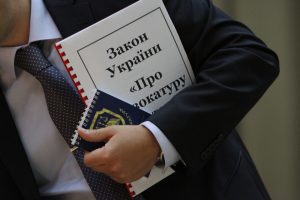In recent years, searches in the premises of a lawyer — residence, office, vehicles — have gradually turned from an exception into a dangerous trend. Interference in legal activities, ignoring the guarantees established by law, abuse by law enforcement agencies — all this is no longer isolated cases, but a systemic problem.
 Similar situations occur much more often than it seems, and every lawyer should be prepared and know their rights, procedures, limits of admissible actions, and ways of prompt response, defense mechanisms.
Similar situations occur much more often than it seems, and every lawyer should be prepared and know their rights, procedures, limits of admissible actions, and ways of prompt response, defense mechanisms.
Searches in the premises of a lawyer are exceptional investigative actions that are allowed only under the condition of a court decision, the participation of a representative of the Bar Council of the respective region, compliance with the guarantees of attorney-client privilege, access restriction only to information related to the subject of pre-trial investigation. However, in practice, such investigative actions are increasingly carried out with gross violations of lawyers’ rights, guarantees of legal practice. In particular, the absence of a representative of the Bar Council of the respective region, unauthorized access to confidential information, searches without proper court decisions, incomplete protocol documentation.
As a general rule stipulated in Part 2 of Article 234 of the Criminal Procedure Code, a search is carried out based on a ruling of the investigative judge of the local general court within the territorial jurisdiction where the pre-trial investigation body is located.
In particular, according to the provisions of Article 23 of the Law “On Advocacy and Legal Practice,” conducting operational-search measures or investigative actions regarding a lawyer, which can only be carried out with the court’s permission, is done based on a court decision made upon the motion of the Prosecutor General, his deputies, the prosecutor of the Autonomous Republic of Crimea, region, city of Kyiv, and the city of Sevastopol. When conducting a search or inspection of the lawyer’s residence, other premises where he/she practices law, temporary access to the lawyer’s belongings and documents, the investigative judge, the court in its decision, must specify the list of items, documents to be searched, identified, or seized during the investigative action or application of measures to ensure criminal proceedings, taking into account the requirements of paragraphs 2-4 of Part 1 of this article.
Thus, for a search in the lawyer’s premises, a set of conditions is necessary, such as a ruling of the investigative judge authorizing the search, a special subject filing a motion for the search in the lawyer’s premises. It should be noted that Part 2 of Article 30 of the Constitution and Part 3 of Article 233 of the Criminal Procedure Code provide exceptions that allow the investigator to enter a person’s premises in urgent cases related to saving lives and property or immediate pursuit of persons suspected of committing a criminal offense before the ruling of the investigative judge. In this case, with the prosecutor’s consent, the investigator is obliged to immediately after such actions turn to the investigative judge with a motion for a search.
The ECtHR in its decisions noted that a search in a law firm, other premises of a lawyer may violate attorney-client privilege, which is the basis of trust between a lawyer and his client (“André and Another v. France“, application No. 18603/03)
If the country’s legislation allows searches in lawyers’ premises, such searches must be accompanied by special guarantees. The Convention does not prohibit imposing certain obligations on lawyers related to their relationships with clients. Such measures must be clearly defined.
A search in a lawyer’s premises is an exceptional investigative action allowed only in cases directly provided by law, and only under strict compliance with the guarantees of legal practice. These guarantees are aimed at ensuring the independence of the lawyer, protecting attorney-client privilege, and preventing interference in legal practice. Each case of conducting a search in a lawyer’s premises in violation of the requirements established by law constitutes not only interference in the professional activities of a specific lawyer but is an interference in the very idea of the independence of the legal community, as one of the key elements of the justice system in a democratic, legal society.
Resisting abuses is the duty not only of the professional legal community but also of the state, which guarantees the rule of law.



